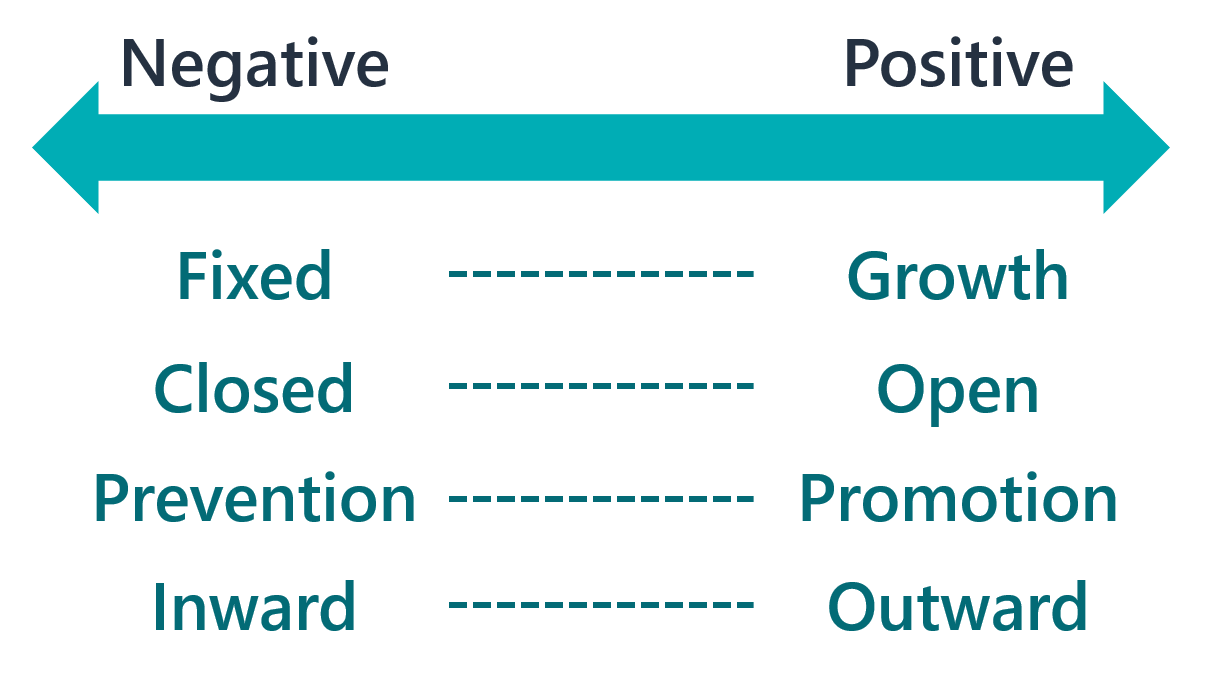State of Leadership Development
75% of employees report their boss is the worst and most stressful part of their job. And, despite the fact that organizations worldwide spend rough $356 billion on leadership development efforts, only 25% of organizations rated their leadership development programs as effective.
In an effort to understand why leaders aren’t having the positive influence we want them to have and why leadership development efforts haven’t been more effective, I have been rigorously studying ‘why leaders do what they do,’ with the idea being that if we can better understand why leaders operate the way they do, we can better develop them to have more of the positive influence we want them to have.
3 Jobs of Mindsets
Everything I have been studying has led me to identify mindsets as the most foundational aspect of why leaders do what they do, making mindsets the most important thing to focus on in developing leaders. What I have learned is that mindsets have three primary jobs:
- Because our brain takes in 11 million bits of information per second, but is only able to fully process 40 bits, our mindsets serve the role of identifying which of all the bits of information coming into the brain get processed.
- Our mindsets ascribe meaning to the information that does get processed. This explains why two people can see the same thing (e.g., failure) and interpret it differently (e.g., an indicator that one is a failure versus an opportunity to learn and grow).
- Based upon the information processed and interpreted, our mindsets activate the different aspects of ourselves (e.g., personality, goal regulation, value system) to best process how to respond to the situation we are in.
Knowing this, it suggests that the reason why leaders may not be having the positive influence we want them to have is that they have mindsets that are biased toward lower-quality information and interpret such information in less-than-optimal ways, activating aspects about themselves that cause them to think and behave in ways that seem like the best course of action in the moment, but are often actually detrimental to those they lead and manage.
Thus, if we can help leaders awaken to the quality of their mindsets, and help them develop healthier and better mindsets, we can transform them and their effectiveness.
The Effect of Leaders’ Mindsets
My research has confirmed that the quality of the leaders’ mindsets has important effects on how effectively leaders operate:


And, that the quality of leaders’ mindsets has important effects on employees’ workplace experience:





Developing Leaders
Now, does this mean that mindsets should be the sole focus of leadership development, absolutely not. We can continue focusing on developing leaders’ traits and behaviors. Such efforts are similar to upgrading files on one’s computer. They expand the range and functionality of the computer.
But, what we need to recognize is that the effectiveness of all of the files on the computer is contingent upon the computer’s operating system. When we focus on mindsets, what we are doing is upgrading the computer’s operating system, making sure that all of the files on the computer are operating more ideally and effectively.
Ultimately, what I am saying is that our mindsets are foundational to everything leaders do, particularly their thinking, behavior, and success:

When we attempt to develop leaders’ thinking and/or behaviors, we may seem some progress, but that progress will be limited and resisted by the leaders’ prevailing mindsets.

The most natural and effective way to develop leaders is to focus on their mindsets. As leaders’ mindsets improve, naturally so will their thinking, behavior, and success.

Why Focusing on Mindsets is Difficult
There are two reasons why it is difficult for organizations to focus on mindsets to develop leaders. First, most of us are not conscious of our mindsets, making it difficult for us to identify the quality of our current mindsets. Second, most of us don’t know what mindsets leaders need to have to process and operate effectively.
Overcoming These Difficulties & More Effectively Developing Leaders
To address this second point, I have scoured the academic literature to find four sets of mindsets that have been demonstrated (over 30 years of research on each) to dictate the quality of leaders’ thinking and behavior, and consequently their success:

To address the first point, I have developed a personal mindset assessment to help people become conscious of the quality of their mindsets. Click the button below to take it for free (20 questions, about 5 minutes).
Across the 10,000+ people who have taken my assessment, only 5% are in the top quartile for the four sets of mindsets.
To help systematically develop leaders’ mindsets in organizations, after individual leaders have completed the mindset assessment, I can aggregate their results to the collective level and produce a collective mindset report similar to the following:





From there, we can take action on developing leaders’ mindsets in the areas they need it most, upgrading the organization’s entire operating system.
Here is more information on the collective mindset report: https://ryangottfredson.com/collective-mindset-assessment










